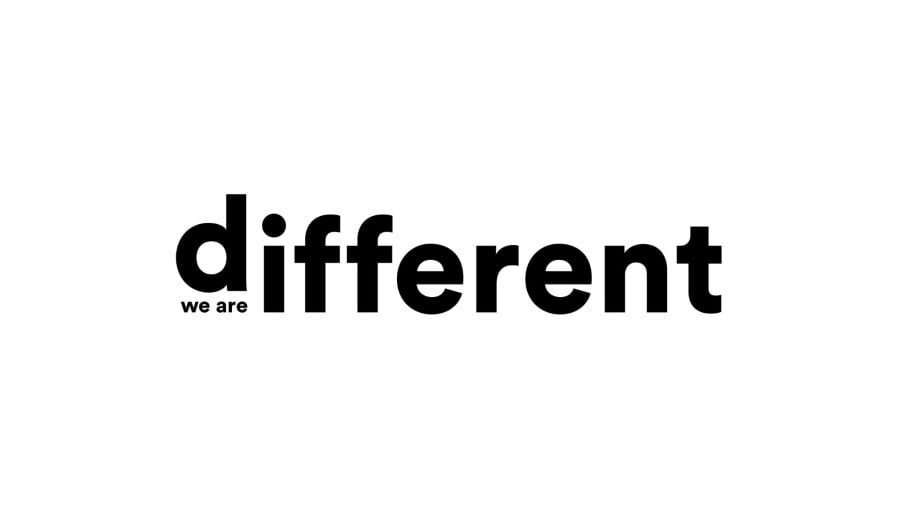Special PR has announced the appointment of three new team members in New Zealand, including Julianna Permitin as Senior PR Director.
Julianna returned to New Zealand to take up the role after spending nearly three years in the UK, where she specialised in technology and corporate. Prior to that, she worked at Sling & Stone in New Zealand, handling corporate and consumer briefs for both global brands and start-ups.
She said: "Special has always stood out to me as an agency that’s redefining comms in New Zealand.
"Bold, ambitious, and unafraid to do things differently. I wanted to keep the pace and energy of London 'agency life' going, and there’s no better place to do that than with a team that’s setting the pace for the industry itself."
Alongside Julianna, Kale Dixon and Georgia Grindle have taken on the roles of Senior PR Executive and PR Executive, respectively.
Kale previously worked at Pead PR and will now work across various accounts, including Tourism New Zealand, Air New Zealand, DB Breweries and Datacom. Georgia, who originally joined Special PR as an intern earlier this year, will support clients, including Jaguar Land Rover, Restaurant Brands, and Moët Hennessy.
Special PR's Managing Director, Kelly Grindle, said: "Special PR has been on an incredible trajectory of growth, new business wins, and most importantly, some incredible work.
"Our team is what makes us ‘Special’ and I’m thrilled to have three new members join us on our mission to deliver some of the freshest PR thinking in the region."
(Pictured, from left: Georgia Grindle, Julianna Permitin, and Kale Dixon)

Special PR adds to their team in New Zealand
Telum Media creating connections
Get in touch to learn more
You might also enjoy
When The Executive Centre (TEC) entered Dubai in 2018, flexible workspaces were still relatively niche in the Middle East market. For Chelsea Perino, a Marketing and Communications Executive based in Hong Kong and her team, the challenge was twofold: establishing brand awareness while learning how business is done in the region.
That changed after Covid-19. While many global markets stalled, the region rebounded swiftly. With the rise of hybrid working, the flexible workspace solutions provider fundamentally flipped its business on its head.
The pace of change in the Gulf region is something industry leaders have noticed. Georgina Woollams, Founder and Managing Director of Katch International and whom expanded her agency from London to Dubai more than a decade ago, explained how approaches to brand building and communications have changed over the years as the market transformed:
“The UAE is probably one of the fastest-evolving countries in the world, so we have to adapt to stay on pace continually. With the growth of the country and a recent influx of people from across the globe, we are always finding ways to reintroduce clients to a new audience while simultaneously storytelling to those in the UAE who already know the brand.”
Relationship building in the Middle East and pitfalls to avoid
Chelsea quickly observed that business culture in the Middle East is highly relationship-driven.
Unlike in many Western markets, meetings often begin with personal conversations about family, daily life, or current events before shifting to commercial discussions.
“Making small talk before discussing business details shows that you care about the bigger story behind an initiative. Not doing so can come across as pushy or insincere,” she notes.
Going hand in hand with relationship building is the grasp of cultural nuances and the exhibition of cultural sensitivity. Yet, an often-overlooked aspect for foreign communicators is the sheer diversity of the region, both in terms of language and personas.
Chelsea highlighted the common misconception of treating the Middle East as a homogeneous market. Each territory has its distinct characteristics and media landscape. Dubai and Abu Dhabi, despite being part of the same country, maintain different business personalities. Saudi Arabia, Qatar, Azerbaijan, and Oman each possess unique cultural, economic, and media environments, with varying dialects of Arabic. She added that success in regional communications requires understanding of both English and Arabic media ecosystems.
Georgina pointed out that a 'pay to play' dynamic is prevalent in certain territories, which might be hard to get around, especially if you are in the real estate or trade industries.
“A lot of international people forget that the majority of the wealth in that region is sitting within the Arabic family holding - it would be naive not to take that side of the demographics seriously,” Chelsea observed.
Tailoring communication to different demographics
Beyond building relationships in person, understanding audiences’ preferred communication platforms across Middle Eastern countries is crucial for successful engagement. Each market has distinct preferences shaping both B2B and B2C communications that brands must adapt to.
While longer-form storytelling and business outlooks would be interesting to audiences of traditional media, social media communication in the region is undeniably on the rise. “X (formerly Twitter) usage in the region is high - it’s actually one of the preferred communications platforms - which is why it is important to consider opening branded channels to drive more tailored engagement when an organisation is expanding into the region,” Chelsea exemplifies.
Georgina echoes Chelsea’s sentiment on the importance of localising communication channels and their content to different audiences. On numerous occasions, she has seen international brands enter the market and think one rule fits all, but that is simply not the case. “For our clients, this is a journey of education, understanding what competitors are doing and how they are doing it right. We then adapt one of their campaigns culturally to show them the great results we can achieve, so they let us continue with this strategy.”
On the other hand, young people aged under 30 constitute more than half of the population across the Middle East and North Africa region, with recent estimates from the OECD placing this figure at around 55%. In this context, Georgina also advises PRs to “be ready to adapt; Generation Alpha are tech-led, so find ways to communicate with them in a manner they will respond to. Generation Z want to know you care, so you need to speak with authenticity.”
Advice for first-timers
When asked what guidance she would offer to international communicators entering this market for the first time, Georgina honed in on localisation and authentic engagement.
“It is essential to localise the content, build genuine relationships with specific communities, not just by sponsoring something, but by truly finding a way to engage with the audience you are targeting.”
Chelsea encourages brands to inform their marketing and communications campaigns through a competitive audit. A test-and-learn approach is also highly beneficial, she has found. Rather than crafting an extensive year-long strategy immediately, she recommends focusing on shorter cycles:
“For Q1, focus on specific initiatives and channels, assess what works, and use those insights to inform your strategy for Q2. If you find success with certain activities, amplify them; if something doesn’t resonate, pivot and explore new options.”
She also urged brands to think carefully about where they launch within the UAE, rather than defaulting to Dubai.
“Each Emirate has its own identity,” Chelsea explained. “Some are known for luxury and glamour, some for financial strength and investment, and others are emerging as entertainment hubs.
“Don’t automatically assume Dubai is the best starting point for your initiatives just because it’s the most familiar to an international audience.”
Full-service communications agency, iD Collective, has welcomed two new clients - Quadrant and Kathryn Eisman.
Fashion and lifestyle brand, Quadrant, has tapped iD Collective to lead strategic communications and event management for its Melbourne pop-up. The agency will deliver a campaign to drive awareness and buzz, as well as consumer and community engagement. The multifaceted strategy will encompass strategic media relations, activation logistics and a VIP event, guestlist management, and storytelling.
"We're thrilled to be supporting Quadrant's full-throttle arrival into Melbourne and having the opportunity to activate in line with the Australian Grand Prix - such an epic sporting and cultural moment," said Amanda Booth, Executive Director of iD Collective.
"As experts in the fashion, sport, and the lifestyle space, we are uniquely positioned to bring this global brand to life for a local audience. Our depth of experience enables us to craft creative communications strategies that cut through the noise, drive impact, and build lasting brand equity."
The agency has also announced that it has been appointed as Australian communications partner for journalist, author, and Founder & Creative Director of High Heel Jungle, Kathryn Eisman. The partnership will see iD Collective lead strategic communications in Australia for Kathryn and High Heel Jungle, amplifying her profile across fashion, lifestyle, business and culture, while supporting continued brand growth, media visibility and creative collaborations.
Independent earned-first creative agency, We Are Different, has announced new senior appointments, promotions, and expanded training initiatives.
The agency said the decision comes amid growing market volatility, as it invests in creative leadership, talent, and culture to drive sustainable growth and long-term client value across its PR, social, and influencer divisions.
Jenna Orme has joined the senior leadership team as Head of Difference. Formerly Managing Director at TBWA's FleishmanHillard, she brings more than 18 years of global agency experience across business leadership, integrated comms, and crisis management. In the new role, Jenna will be in charge of strengthening the agency's people-first approach, focusing on team growth and creative excellence.
Siobhan Veddovi-McCaughan has been promoted to Group Performance Director, stepping into the senior leadership team after joining the agency in January 2024. She has delivered work across consumer tech, travel, and food and beverage verticals, and will now oversee earned-first creative work, client partner performance, and team development.
The agency has also welcomed Helaina Young as Performance Executive within its earned division, joining from alt/shift/ in a newly created role.
Alongside new hires and promotions, Different has announced investment in staff development initiatives:
Coaching Culture
Led by industry veteran and former One Green Bean CEO, Claire Salvetti, this initiative gives Different's team members access to an executive coach for one-on-one and group sessions. The program aims to unlock leadership capability at every level by building confidence, sharpening judgement, and affirming the power of doing things differently.
Culture Club
The program draws inspiration from counter-culture movements - from art to astrology, and activism to the creator economy - to provoke different thinking and sharpen cultural instinct. The result is fresher thinking, stronger collaboration, and more culturally resonant work for clients.
Different Academy
The program blends hands-on learning, live client briefs, and applied AI capability to upskill the next generation of earned-first leaders. It embeds learning into the agency's day-to-day operations, improving strategy, creative, client outcomes.
"When teams are supported, challenged and trusted, it shows up in the work," said We Are Different Founder and Director, Stuart Terry.
"We're offering clients an agency culture where ambitious people at all levels are empowered to do the best work of their careers. Partners feel that in the passion of the team, the quality of the thinking and the great results we achieve together."
He added that investing in people remains the agency's competitive edge.
"It's fundamental to do work that earns attention, builds trust, and delivers real commercial impact. Our clients benefit from teams that combine craft excellence with a genuine desire to do things differently."


